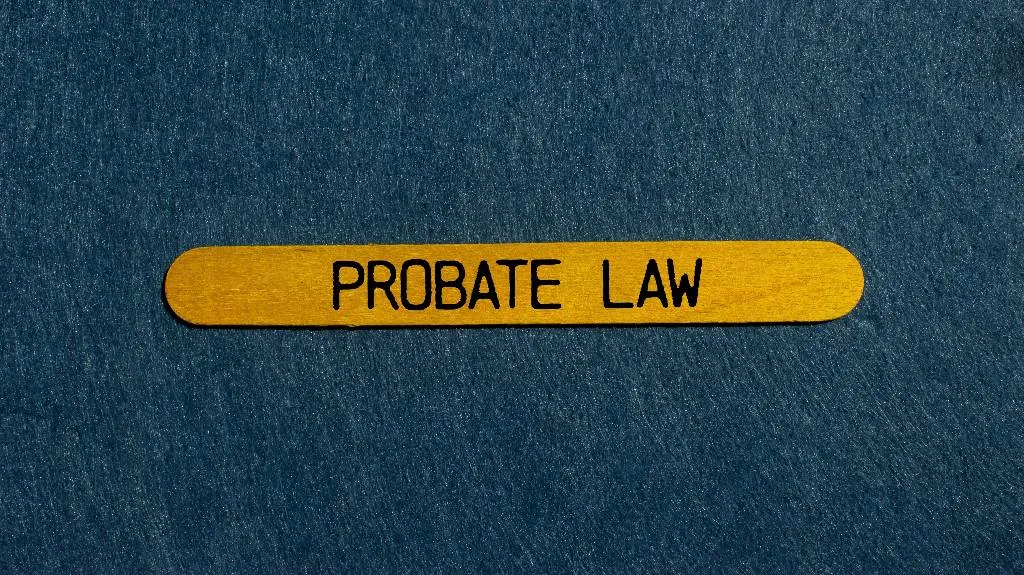When purchasing your first home, you should think about drafting an estate plan. After you pass away, an estate plan will guarantee that your desires are carried out and your assets are correctly handled. Estate planning can also safeguard loved ones from costly inheritance taxes and other financial responsibilities that come with inheriting property. Creating an estate plan should be a priority for any new homeowner in order to protect their family’s future and secure their assets for future generations.
Why is an Estate Plan Important for Homeowners?
For many of the same reasons that an estate plan is important for other types of assets, homeowners also need one. However, owning a home can present some special estate planning issues and considerations, making a trust especially useful in this situation. Here are some details on why having trust is crucial for homeowners:
Get a Free Consultation Today
- Avoiding Probate: One of the main advantages of using a trust is that it enables real property to pass directly to the beneficiaries named in the trust, avoiding the probate procedure. Legal fees and potential delays in transferring ownership to heirs make real estate probate particularly laborious and time-consuming.
- Tax Implications: When a person dies, their assets, including real estate, get a “step-up” in basis to the fair market value at the time of death. This effectively wipes out any capital gains that may have accrued during the decedent’s lifetime by adjusting the property’s cost basis to its value on the date of death. If the property is subsequently sold soon after the person’s passing, there might not be any or very little capital gains tax owed.
- Privacy: Since real estate is a valuable asset, it may become public knowledge if it is distributed through probate. Real estate ownership can be transferred in a more private manner by using a trust, which also helps to keep family members’ knowledge of the property’s value and distribution private.
- Title Consolidation: Placing your properties in a trust can help you consolidate the titles and streamline the estate administration procedure if you own multiple properties in various states. In each state where the properties are located, probate is not required.
- Incapacity Planning: A trust may contain provisions for the administration and use of real estate in the event of your incapacity. By doing this, you can be sure that someone you can trust can manage the property’s affairs without involving the court.
- Flexibility in Distribution: A trust enables you to specify the distribution of real estate among beneficiaries, allowing for individualized and flexible distribution plans that meet the particular needs of your family.
- Asset Protection: Depending on the kind of trust used, real estate that is held in a trust may be shielded for the benefit of your beneficiaries from creditors and potential lawsuits.
- Special Use Directions: You can include detailed instructions in the trust for how the real property should be used or maintained after your passing if it has sentimental or special significance.
A trust is frequently regarded as a useful tool when it comes to real estate and thorough estate planning because of these factors. To guarantee that your trust is appropriately structured and adheres to your specific objectives, you must work with a qualified attorney with experience in estate planning and real estate law.
Special Awareness on Type of Ownership
Though putting a house in a trust can have numerous advantages, there are a few other possible problems and factors to take into account, particularly when it comes to how you keep title to the property. Tenants in common and joint tenancy are the two most typical forms of shared ownership of real estate.
Joint tenancy is a type of ownership in which two or more people have equal rights and obligations regarding the administration and use of property. Co-owners under joint tenancy have an undivided stake in the entire property, which means they each have access to all sections of it. When one owner passes away, their shares are automatically transferred to another owner without the need for probate. Furthermore, in order for the transaction to take place, if one owner seeks to sell their piece of the asset, they must first obtain consent from the other owners involved.
Tenants in Common are similar to Joint tenants, but there are some major differences that should be considered when determining which type of ownership is best suited to your unique needs and scenario. In contrast to Joint Tenancy, in which each person holds an undivided interest in the entire asset, tenants in common can possess unequal portions and have separate interests in how assets are handled or used throughout their lifetimes as well as after death. This means that, unlike in joint tenancy, where shares transfer straight to the remaining co-owner(s), shares in tenants in common can be handed on through a will or trust instrument in accordance with the instructions expressed by the dead tenant before their death.
Furthermore, while disputes may arise among joint tenants due to both parties having full access to the entire asset, legal issues with tenants in common are less common due to separate ownership within the same property, allowing each tenant control over respective portions owned without interference from others unless previously agreed upon beforehand. Overall, it’s critical to understand both types of shared ownership before deciding which is best for your purposes because the implications of each vary greatly based on the circumstances.
Creating an Estate Plan
An estate plan is a legal document that specifies what happens to your assets after you die. It may include property distribution instructions, such as who will receive certain assets or amounts from your estate. In the event of a death, an estate plan can also provide guidance on how to care for minor children and other dependents. Furthermore, by ensuring that all applicable tax exemptions are used when distributing assets, an estate plan can help save unnecessary taxes.
An estate plan’s principal goal is to ensure that your desires are carried out and that any financial burden associated with inheriting property is reduced or avoided entirely. Without an estate plan, state rules will define how your assets are handled upon your death, perhaps resulting in high inheritance taxes or unwelcome distributions against your wishes. Estate plans also provide peace of mind in knowing that you have taken precautions to safeguard the people closest to you in the event that anything unforeseen occurs, as well as confidence regarding their future financial security and well-being.
Creating a successful and complete estate plan requires advance planning, taking into account all relevant variables such as family dynamics, personal goals, asset distribution preferences, potential tax implications, and more. When drafting or amending an estate plan, consulting with an attorney experienced in trust and estate law can be advantageous since they can help clarify potential dangers as well as evaluate current paperwork for correctness before execution.
Reviewing Your Estate Plan After Purchasing a Home
To make sure that your estate plan is current and accurately reflects your wishes, it is crucial to regularly review it with a trust and estate law expert. Even more so after you purchase a home, it’s crucial to evaluate and update your estate plan to make sure it adequately takes into account the new property.
To understand how the additional property affects your overall plan, you should evaluate each of the various documents in your current estate plan with your lawyer. To avoid probate, think about adding the recently acquired property to the estate plan’s asset list and transferring the home’s ownership to the trust. In particular, if the house becomes your principal residence, check the beneficiary designations to make sure they still reflect your actual objectives. Examine your will to make sure it complies with your intentions regarding the new property, and take into account any potential tax ramifications. If you need to, update your healthcare directive and power of attorney, especially if the property needs ongoing administration. Last but not least, speak with an estate planning lawyer to make sure your plan is correctly modified and suited to your current situation. This will give you peace of mind knowing that your assets will be managed and dispersed in accordance with your intentions.
You might find this helpful: “Estate Planning 101: The Critical Importance of Having Your Estate Plan Reviewed.“
Choosing an Estate Plan Attorney
When selecting an estate planner, it is critical to assess the services provided as well as the qualifications of each individual. There are numerous estate planners available, each with varying levels of competence and experience in different areas such as tax planning, trusts, business succession plans, and more.
Before hiring an estate planner, it is critical to ask several essential questions that will reveal their level of expertise about your specific goals and objectives. It is also a good idea to learn about any additional fees paid for services given so that you can correctly compare pricing across different law firms. Questions such as, How long have they been in practice? Do they have any specialties? Are they conversant with state estate planning laws? What professional memberships do they have? Have any previous customers provided references or testimonials that can be reviewed? What documents are included in their estate plan package? What is the price of the estate plan package? What fees are included or excluded? Are there any documents they recommend that are not part of the package price?
You might find these helpful “What Should You Ask Your Estate Planning Attorney?” “What to Bring to a Meeting With an Estate Planning Attorney”
By thoroughly investigating available options prior to engaging an estate plan attorney, you can be confident that all essential procedures were followed to achieve desired objectives while minimizing the risk associated with entrusting someone else with personal cash or assets. When developing an initial plan, an expert attorney specializing in trust and estate law should be consulted, as well as when ensuring that existing documents remain up-to-date over time due to changes made by state legislators that may influence how assets are divided when death occurs.
Conclusion
Anyone who has recently acquired their first home should create an estate plan. An efficient estate plan will give people who are concerned about what will happen to their possessions if they become incapacitated or pass away, peace of mind. It can also assist in ensuring that your desires are carried out in the event of your death and that your loved ones are appropriately cared for. Furthermore, by expediting the process and ensuring all necessary paperwork is in place, having an updated estate plan helps save legal expenditures connected with settling estates after a person’s death.
Aside from providing financial stability for family members, developing a complete estate plan has additional advantages, such as avoiding probate court hearings, which may be costly and time-consuming when dispersing assets. Having an up-to-date estate plan document gives individuals more control over how their money is distributed among beneficiaries, as well as more flexibility in deciding who should receive what portion of their inheritance without having to worry about potential disputes between heirs down the road due to unclear instructions. Furthermore, having powers of attorney ahead of time gives another individual the right to act on behalf of the decision maker in cases where the decision maker is unable to do so themselves due to injury or illness, allowing for continued assistance even during the most difficult moments in life. Finally, having an updated estate plan is critical to ensuring that one’s hard-earned money is secured after death while also giving flexibility in terms of asset distribution so that people left behind can continue living the lifestyle that the executor intended.
Filippi Law Firm, P.C., provides legal services in estate planning, probate, trust administration, trust litigation, and personal bankruptcy in the greater Sacramento area, with a focus in Rocklin, Roseville, Lincoln, and Granite Bay. Give us a call at (916) 333-7910 or fill out the contact form to get in touch with our office. Consultations are free, and they can be done over the phone, via Zoom, or in person at our office in Rocklin. Prepare for your future and work with the best estate planning attorneys today.




